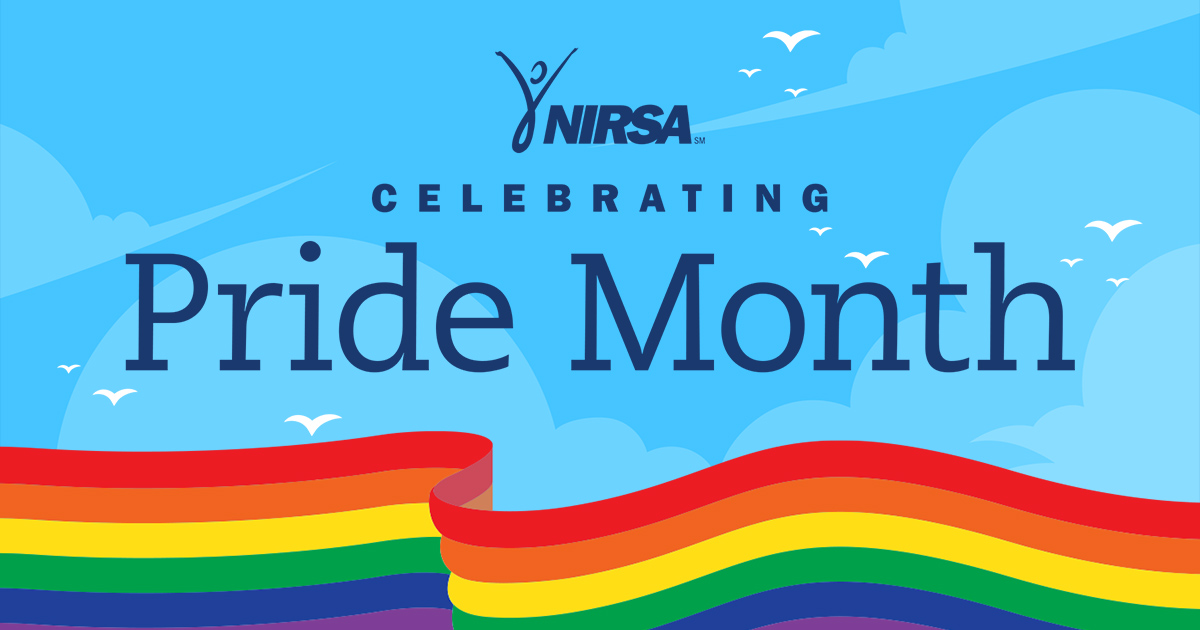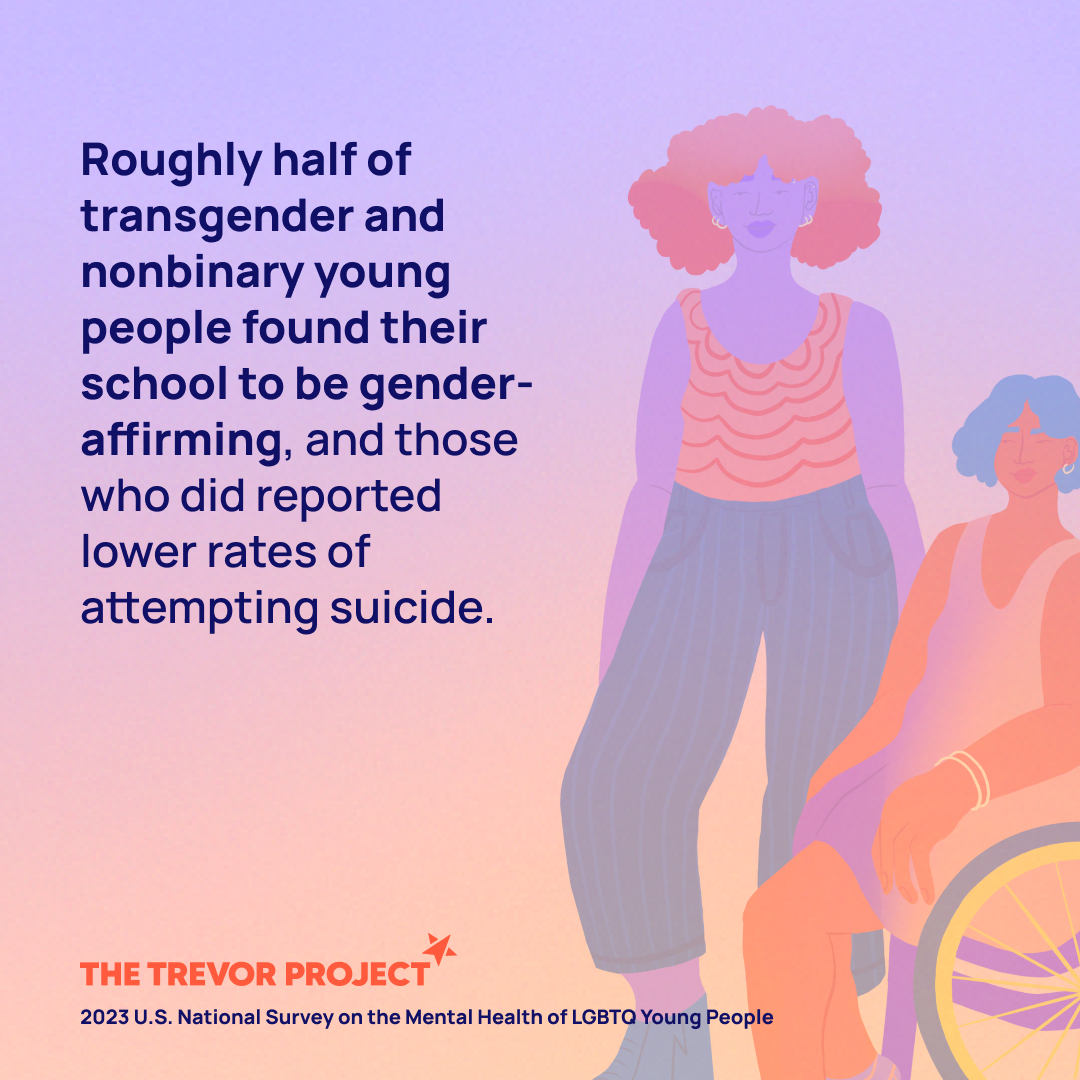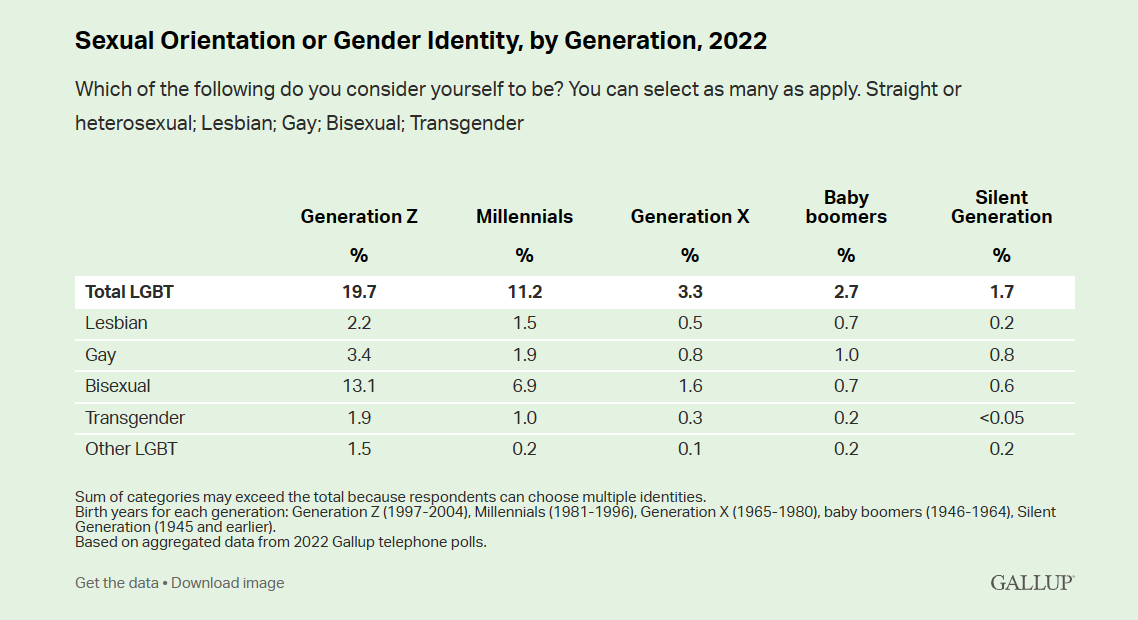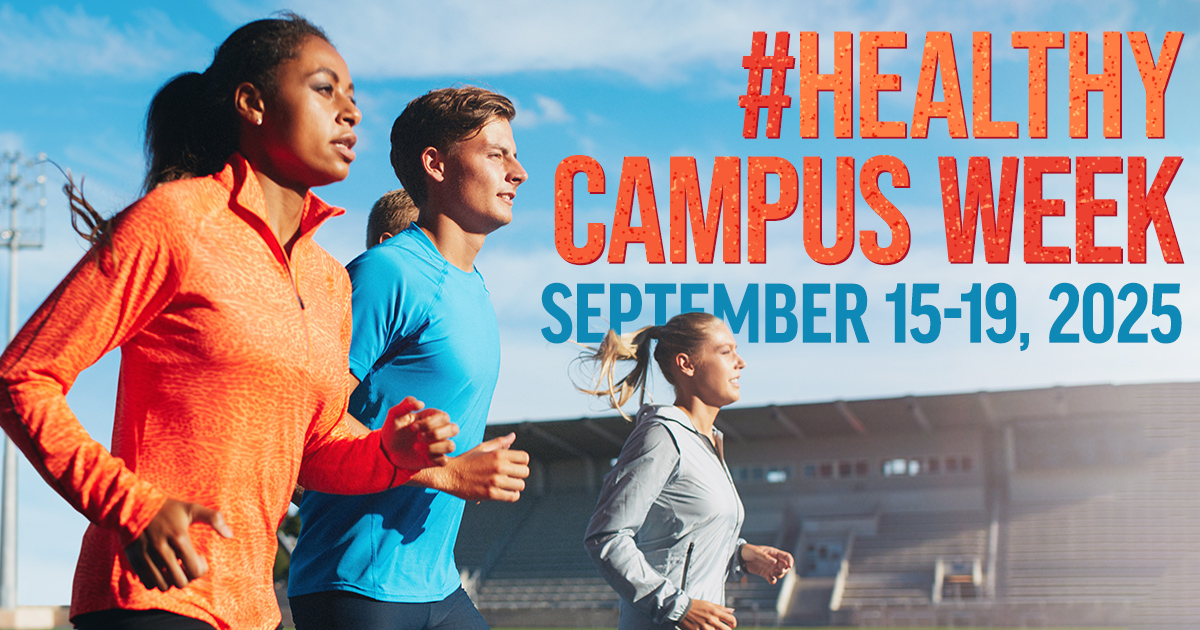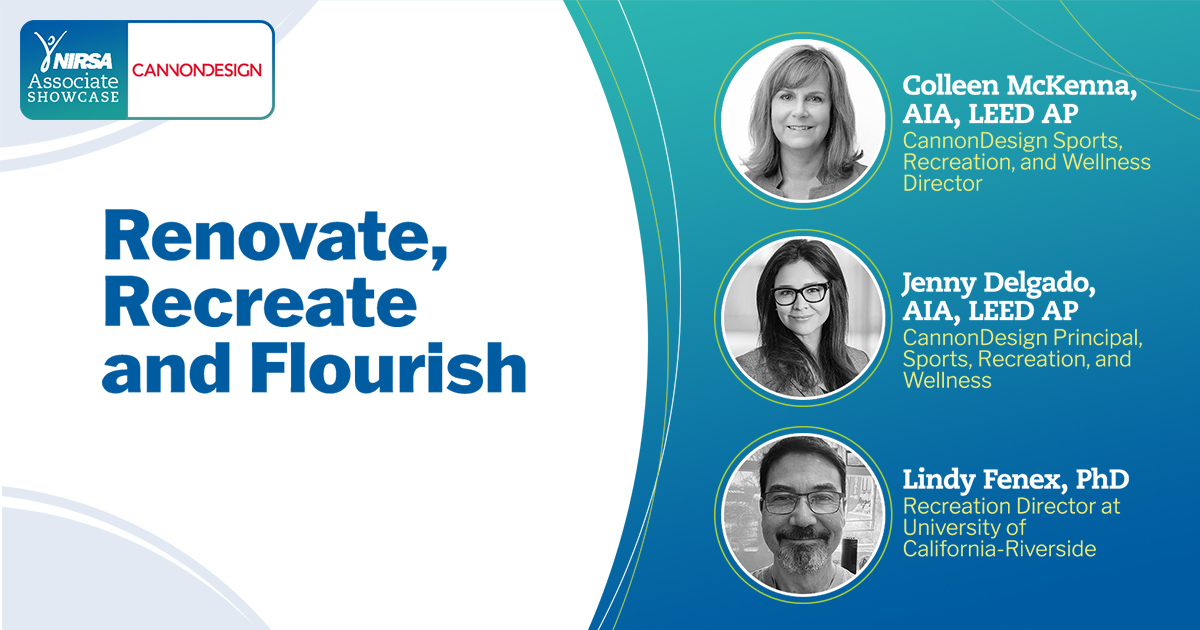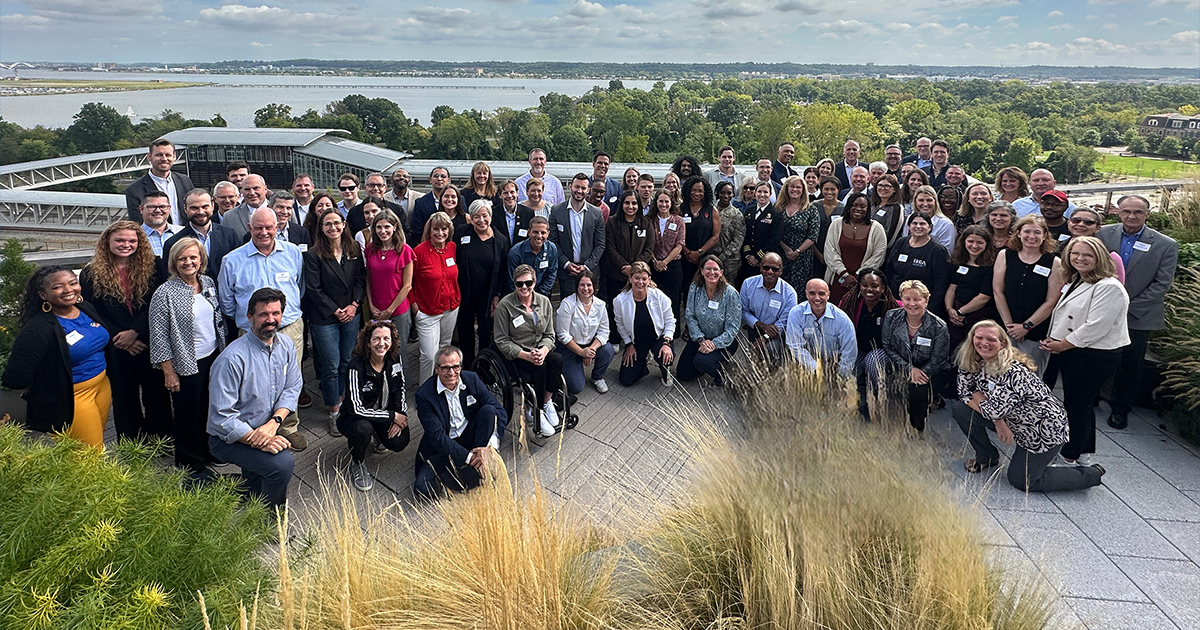Over 300 anti-LGBTQ+ bills focused specifically on education have been introduced into state legislatures in the first half of this year alone.
June is a month to both celebrate the LGBTQ+ community and for us to try to better understand the current struggles being faced across the country by our members and the communities and individual students who NIRSA members serve.
A record number of anti-LGBTQ+ bills have been introduced in legislation proposed across the country this year. "We have seen the scope and scale of these attacks increase over the last few years, starting around 2020–2021," says communications strategist for the ACLU Gillian Branstetter in a recent interview with CNN's Annette Choi. This year, there have been more bills introduced than ever before and the extremity of the proposals bills has also gotten worse.
From bathroom bills to restrictions on school curriculum: How anti-LGBTQ legislative tactics have shifted over the yearshttps://t.co/qDwesgS0RD
— Annette Choi (@annette_choi) April 6, 2023
Representation matters
The struggles are real, and they continue to pile-up for too many across our intersections with society. However, the people and forces who would like to see us suppressed and erased do not go about their work unopposed. While the community remains under attack politically, media representation has made it possible to see our stories displayed in American culture.
GLAAD—who has tracked LGBTQ characters for nearly three decades—suggests that there has been an uptick in media representation for members of the LGBTQ+ community over recent years. In their 18th Where We Are on TV (WWATV) report, GLAAD President and CEO asserts: "The power of narrative change and inclusive storytelling is more crucial than ever at this moment. The full report presents key findings around the ways in which LGBTQ characters intersect with racial, ethnic, ability, familial, and other identities on screen.
According to the most recent Gallop survey of 2022, the number of adults who identify as LGBTQ+ is double what it was ten years ago. In covering the poll for USA Today, editor Susan Miller suggests that "One of the key takeaways from the annual poll in recent years has been the growing presence of Generation Z in embracing new identities."
Susan Miller goes on to interview Cathy Renna, communications director for the National LGBTQ Task Force. Renna says that the poll results reflect reality as LGBTQ young people continue to blaze trails: "Who we are is rooted deeply in us and is something young people—growing up in a culture that has finally been able to tell them that they aren't alone, that they are beautiful and perfect exactly as they are—will never turn back from now."
A legislative tidal wave
Over the last few years, the NIRSA Government Affairs Committee has included anti-trans legislation as one of their core watch points. In 2021, the NIRSA Board of Directors released a statement on transgender sport participation that critically highlighted our Association's views on inclusion.
As the Government Affairs Committee tracks the waves of newly proposed policies being considered across the country, there has unfortunately been an overwhelming number of anti-trans legislation. According to the Track Trans Legislation website, "45 states have proposed anti-trans bills in 2023."
Some states have had policies presented and passed that specifically name "intramurals" and other sectors of campus recreation, and some that call for the sex assigned to an individual at birth to be used in the classification of any sports participation. The Track Trans Legislation website is a great resource for keeping up to date with recent legislation regarding anti-trans policies in your area and across the country. Unless you live in Delaware, Massachusetts, New York, Vermont, or Wisconsin, you might be surprised to find what legislation is being considered by your state.

Supporting your LGBTQ+ Community
There is some light in our conversation, however. First, let's tackle the leading question of: "What can I do to support the community?" Here are some suggestions to help provide a more inclusive campus recreation community at your own institution:
Policies, handbook, and marketing review
Take time to review your facility guidelines for gendered language, including policies in forms, locker rooms, hiring applications, dress codes, club sports, or intramural participation.
Consider whether your department's marketing materials reflect the diversity of the student population. Are concepts of equity, diversity, inclusion, and justice reflected in the mission, vision, and strategic plan of the department or program area?
Pronouns
Want to put your pronouns in your email signature, business cards, or nametag? Explore the Pronouns Matter resource at mypronouns.org to see why this gesture is important. The practice is under threat in many state school districts and even in higher education in some states.
Student & professional development
Seek out training and development opportunities on diversity, equity, inclusion, and social justice on your campus, through NIRSA, or from other trusted entities.
Provide resources to your students and employees. Facilitate discussions by utilizing the case studies in the NIRSA EDI (Equity, Diversity, & Inclusion) Guide. And don't forget to encourage LGBTQ+ folks who are on your staff to participate in NIRSA LGBTQ+ Community Caucuses.
Amplifying newer voices
Beyond what you can do as an individual, it is vital for our organizations to amplify newer voices and explicitly welcome them into the LGBTQ+ community. As mentioned in our 2022 Pride article, more people are identifying within the LGBTQ+ community than ever before in recorded history.
In our efforts to encourage this wave of highlighting newer voices, we reached out to our personal networks to hear from young professionals about their experiences related to the LGBTQ+ community. Here are some of those voices:
"This year, I have been able to connect with other queer students at Penn State and identify perceived benefits and barriers to physical activity participation in campus recreation spaces. This will hopefully lead to queer-focused recreation programming that is guided by their responses to promote physical activity engagement!"
– Keegan Peterson, he/him, PhD student in Kinesiology at Penn State University
"This year, I was able to co-host a leadership training on pronouns for our student staff on behalf of our Diversity Committee on pronouns. We were able to include stories from myself and other staff members within the rec center on how our gender identities have influenced us and shaped our lives, and why the usage of correct pronouns is so important as a basic form of respect. We were able to have productive discussions with many students who were not as familiar with the subject."
– Lexi Morrissey , she/they, Sport Clubs Graduate Assistant at the University of Central Florida
"I have grown to be very open with my sexuality and identity and I have sensed some of our more queer-dominated clubs feel more comfortable to come talk to me about issues they see within their clubs.
It was so awesome to see how many more people were at the LGBTQIA+ social in Pittsburgh this year. The support in NIRSA for the LGBTQIA+ community is unmatched and it truly helps make my job better every day knowing campus rec's professional association supports all individuals equally."
– Emily Ohlson, she/her/hers, BA in Health Promotion and Wellness Management, MA in Higher Education Administration both from Rowan University, lesbian/gay woman
"I am a first-year professional who didn't go the typical grad school route [to get into campus recreation]. It has been nice to meet some peers who identify as LGTBQIA who are in the same profession as me first because it gives me a chance to network and just meet colleagues, but second because it gives me an opportunity to discuss ideas of openness to all and accessibility in non-stereotypical LGBTQIA settings. I have enjoyed getting on Zoom calls to discuss trends, and brainstorm how to reach out to minority populations in the campus recreation world."
– Daniel Smith, he/him, Campus Recreation Manager at Roanoke College
"The LGBTQ & Allies Social at the 2023 NIRSA Annual Conference was a huge highlight of my year. I genuinely did not know about 'Region 7' and the history that was attached to our industry. I am excited to be more involved hopefully next year with the caucus!"
– Jennifer Fasano, she/her, Sport Clubs Coordinator at Florida State University and Masters in Education, lesbian
It is vital that we continue to share out the positive stories happening in our professional community. If we don't share them out with our colleagues, friends, and fellow members, our stories get lost amongst the happenings of the world.
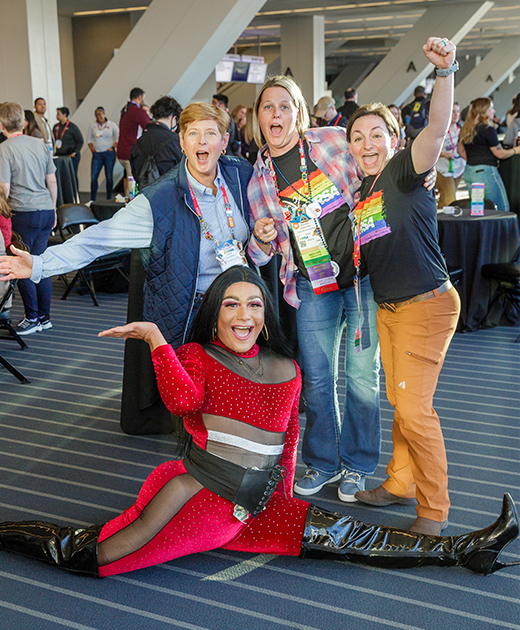
If you were able to attend the 2023 NIRSA Annual Conference in Pittsburgh, Pennsylvania you might have seen the drag performance showcased at the LGBTQ & Allies Social! Crystal Rosé graced the stage with a delightful and energetic performance.
The drag artist, Crystal Rosé, was portrayed by JP, a student at Florida Gulf Coast University. JP (he/him/his) works within University Recreation at FGCU.
With the current political landscape, especially given anti-drag performance bills, it was a welcomed showcase at our Association's Annual Conference that brought joy and hope to our community. If that was your first drag performance or if you're looking to give back to your local drag queens, make sure to read up on social expectations as an audience member. Trixie Mattel—a former RuPaul's Drag Race Queen—provides some historical context for Drag culture, and for specific attendee guidelines you can look at Illinois State University's recommendations and an article from Matador Travel. If all else fails, remember: Always tip your queens!
Thank you. We hope you continue to find ways to support, advocate and uplift the LGBTQ+ community all year long.
- If you are interested in highlighting your campus or a NIRSA member's achievements on your campus, pitch us your ideas.
Lauren Brown, [she/they], is currently Director of the Student Recreation Center at Red Rocks Community College; email Lauren at lauren.brown@rrcc.edu.
Amber Mateer, [they/them], is currently Associate Director of Campus Recreation at Plymouth State University; email Amber at almateer@plymouth.edu.


